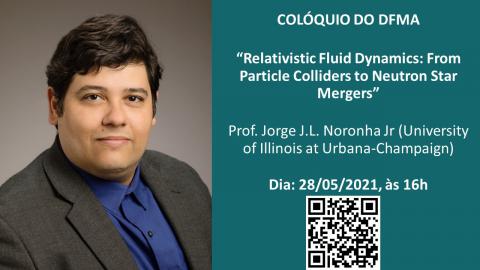
Transmissão ao vivo via YouTube e Zoom
Resumo: Heavy-ion collision experiments have provided overwhelming evidence that quarks and gluons, the elementary particles within protons and neutrons, can flow as a nearly frictionless, strongly interacting relativistic liquid over distance scales not much larger than the size of a proton. On the other hand, with the dawn of the multi-messenger astronomy era marked by the detection of a binary neutron star merger, it became imperative to understand how extremely dense fluids behave under very strong gravitational fields. Therefore, three of the most cutting-edge experimental apparatus in modern science, the Relativistic Heavy Ion Collider (RHIC), the Large Hadron Collider (LHC), and the Laser Interferometer Gravitational-Wave Observatory (LIGO) are now taking data whose description requires a major overhaul of our current understanding of fluid dynamics. In this colloquium I will discuss the new developments that have contributed to redefine the onset of relativistic fluid dynamics and its extension towards the far-from-equilibrium regime. New results involving viscous fluids and their coupling to general relativity will also be presented. These results pave the way for the inclusion of viscous effects in neutron star merger simulations.

